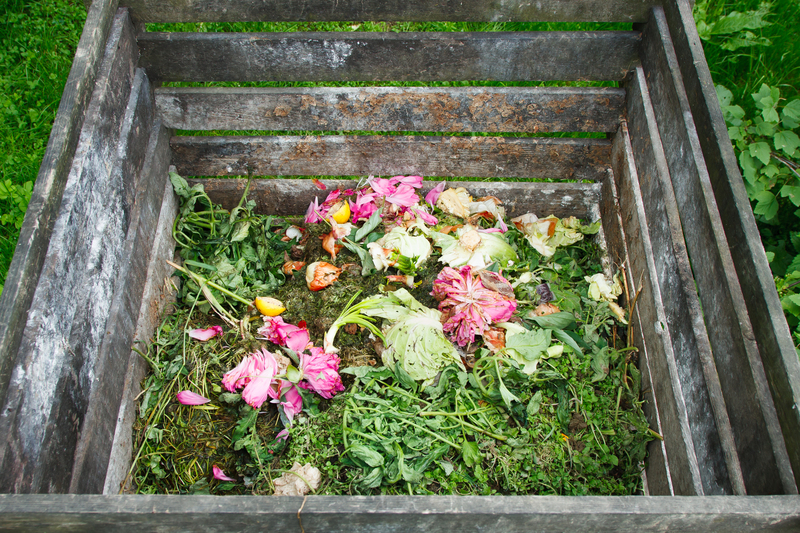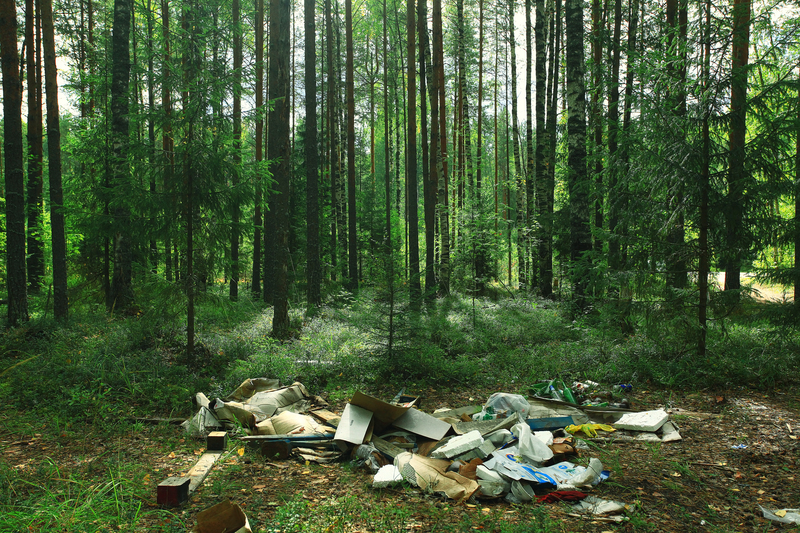Economical Alternatives for Managing Bulky Waste
In today's fast-paced world, the management of bulky waste--such as sofas, mattresses, large appliances, and furniture--has become a significant challenge for both households and municipalities. Traditional disposal methods can be expensive, environmentally unsustainable, and logistically complex. This comprehensive guide explores economical alternatives for managing bulky waste that save money, reduce environmental impact, and foster responsible community habits. Whether you're a homeowner, business owner, or local authority, these creative solutions will help you handle large waste items efficiently.
Understanding Bulky Waste
Bulky waste refers to items that are too large to be disposed of in regular waste bins or bags. Examples include:
- Old furniture (sofas, beds, wardrobes)
- Large electrical appliances (refrigerators, ovens, washing machines)
- Mattresses and box springs
- Carpets, rugs, and other heavy household fixtures
- Yard debris and garden waste (tree branches, logs)
As landfill space becomes scarcer and waste management costs rise, it's essential to explore cost-effective and sustainable ways to deal with these sizable items.

Why Economical Bulky Waste Management Is Important
Efficiently managing large waste items offers substantial benefits:
- Cost savings for households and local governments.
- Environmental protection, as more waste is reused or recycled instead of going to landfill.
- Reduced illegal dumping and cleaner neighborhoods.
- Encouragement of reuse and recycling initiatives in the community.
Top Economical Alternatives for Managing Bulky Waste
1. Donation and Reuse
One of the most effective and budget-friendly ways to manage bulky items is through donation and reuse. Instead of sending large furniture or appliances to the dump, consider giving them a second life. Many charities and non-profit organizations will collect your unwanted goods for free.
- Local charities often accept furniture, beds, and white goods in good condition.
- Reuse networks, such as Freecycle or Facebook Marketplace, make it easy to give away or sell items.
- Community swap events offer opportunities to exchange usable items, keeping bulky waste out of landfills.
By opting for reusing sturdy, serviceable goods, you save on disposal fees and help those in need, all while reducing your environmental footprint.
2. DIY Upcycling and Repurposing
Turning old bulky waste into something new is not only affordable but also fuels creativity. Upcycling and repurposing furniture and other items has become increasingly popular, thanks to the rise of online tutorials and social media communities.
- Convert old pallets into garden furniture or planters.
- Refinish battered wooden items for use elsewhere in your home.
- Break down large items into parts--like metal frames, wood, and fabric--to use in DIY projects.
This eco-conscious approach minimizes waste and can become a rewarding hobby that saves money.
3. Community Bulky Waste Collection Days
Many municipalities organize special collection days for large waste items. Coordinating disposal at the community level can significantly lower individual costs.
- Bulk waste days usually offer free or discounted pickup for residents.
- Pooling resources in neighborhoods reduces transportation and landfill fees.
- Some programs also facilitate sorting for recycling or donation.
Stay informed about local schedules and guidelines to take advantage of these cost-effective waste management efforts.
4. Hiring Private Bulk Waste Removal Services
If city-run collection is limited or unavailable, private junk removal companies are another option. While this incurs some cost, there are ways to economize:
- Compare rates among companies and look for seasonal promotions.
- Team up with neighbors to split costs for large hauls.
- Ask about eco-friendly disposal and recycling policies.
Remember to select a reputable, licensed operator to ensure responsible and legal disposal of your bulky waste.
5. Drop-Off at Local Recycling and Waste Facilities
Many municipalities operate recycling centers or transfer stations that accept bulky waste at a fraction of the curbside pickup cost. This is often more affordable and eco-friendly if you have access to suitable transport.
- Some centers charge minimal fees for dropping off furniture or appliances.
- Materials like wood, metal, and plastics are sorted for recycling or energy recovery.
Before visiting, check facility rules and accepted item lists to prevent unnecessary trips.
6. Retailer Take-Back and Trade-In Programs
Retailers are increasingly part of the bulky waste solution by offering take-back programs:
- When you purchase a new appliance, many stores will remove and recycle the old one free of charge as part of delivery.
- Furniture stores may offer trade-in discounts if you return used items.
- Some companies run periodic recycling days, especially for mattresses and electronics.
Ask your retailer about these programs before disposing of large goods independently--this often proves the cheapest and greenest method.
7. Renting a Dumpster or Skip Bin
For large volumes of waste after renovations or clearouts, renting a skip bin can be cost-effective, especially when shared with neighbors.
- Choose the right bin size to save money and avoid overage fees.
- Separate recyclables and donate usable items before disposal to reduce volume, and subsequently, costs.
Some providers offer discounts for early bookings or off-peak periods.
8. DIY Bulky Waste Transport and Disposal
If you own or can borrow a truck, self-hauling can be the most economical alternative for managing bulky waste:
- Check for local dump days or reduced-fee hours at transfer stations.
- Plan your trip efficiently to maximize loads per trip and minimize fuel use.
This do-it-yourself route offers flexibility and direct control over the disposal process.
9. Bulky Waste Recycling and Resource Recovery
Not all bulky waste needs to be trashed. Many items are eligible for recycling or can re-enter the manufacturing cycle as raw materials:
- Metals from appliances and bed frames are highly recyclable.
- Wooden furniture can be repurposed or mulched.
- Upholstery, foam, and textiles may be reused in insulation or padding for new products.
Researching local recycling options maximizes the environmental benefits and can in some cases offer monetary rewards for scrap materials.
Tips for Reducing Bulky Waste at the Source
The best way to lower bulky waste management costs is to limit the accumulation of large items through smarter purchasing and maintenance:
- Buy quality over quantity: Invest in durable furniture and appliances that last longer.
- Choose modular and repairable goods: Opt for products that can be upgraded, fixed, or adapted instead of replaced.
- Rent or borrow occasional-use items: Instead of buying, consider local equipment libraries or sharing platforms for things you need infrequently.
- Regularly maintain appliances and furniture: Proper care extends lifespan and reduces replacements.
- Consider multifunctional furniture to minimize the total volume of goods in your home.
Following these preventative strategies reduces the burden and frequency of handling bulky waste, leading to ongoing savings.
Understanding Local Regulations for Bulky Waste Disposal
Different cities and municipalities have specific rules regarding large item disposal. Ignoring these can result in fines or rejected pickups. To ensure compliance and cost-savings:
- Check your city's official waste management portal for collection days and accepted items.
- Follow preparation instructions, such as disassembling furniture or removing doors from appliances.
- Never dispose of hazardous materials (like refrigerators with refrigerants) without proper professional help.
Staying informed helps you avoid additional fees and supports the efficient operation of your local waste management system.

The Environmental Impact of Responsible Bulky Waste Handling
Economical alternatives for managing bulky waste not only save you money but also greatly reduce environmental harm. Every item that is reused, recycled, or kept out of the landfill results in:
- Lower greenhouse gas emissions from decomposition and incineration.
- Conservation of resources through recycled materials.
- Cleaner neighborhoods and public spaces, free from illegally dumped large items.
- Support for a local circular economy focused on reuse and repair.
With increasing awareness and participation in these alternatives, your community can cultivate greener habits and long-term cost savings.
Conclusion
Managing large and unwieldy waste items does not have to be a financial or environmental burden. By embracing economical bulky waste management alternatives--such as donation, reuse, community collection, recycling, and responsible purchasing--you can minimize costs while making a positive impact on the planet. Each strategy outlined here offers practical ways to handle bulky waste, no matter your location or budget. Start today by assessing your bulky waste, exploring local options, and choosing the pathway that's most efficient, sustainable, and cost-effective for you.
Remember: Small changes in how you dispose of big items can add up to significant savings and a healthier environment for everyone.
```